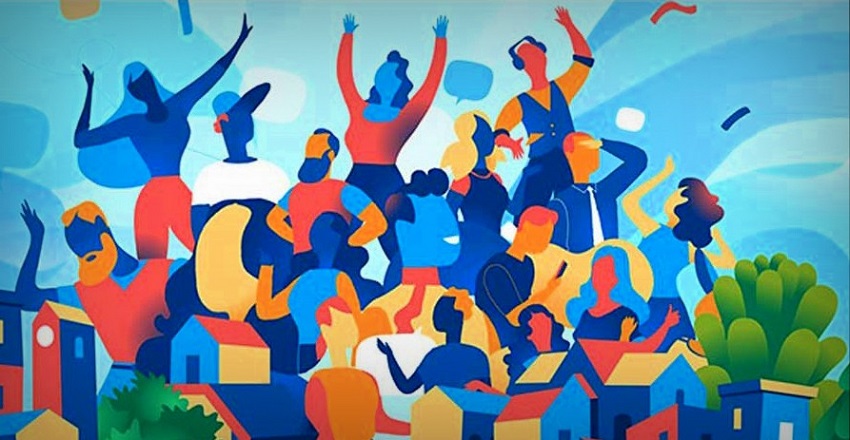Imagine a world without society. It’s difficult, right? Society is the fabric that holds us together, providing structure, norms, and interactions that shape our lives. But have you ever wondered what exactly makes up society? In this article, we will explore the fundamental elements of society and delve into their significance in shaping our collective human experience. This content is provided by https://tapasociety.org/
People: The Building Blocks of Society
At the core of every society are its people. We, as individuals, form the foundation upon which society is built. It is through our interactions, relationships, and shared experiences that society thrives. People bring diversity, skills, and perspectives, contributing to the rich tapestry of social life. Discover the importance of society.
Culture: The Identity of a Society
Culture encompasses the beliefs, values, customs, traditions, and behaviors shared by a group of people. It shapes our identities and influences how we perceive and engage with the world around us. Culture gives us a sense of belonging and provides a framework for social interactions, shaping our norms, language, art, and traditions.
Institutions: The Organizational Structures
Institutions are the formal and informal structures that govern and organize society. These include government bodies, educational systems, religious organizations, legal frameworks, and more. Institutions provide the rules, regulations, and structures that guide behavior, maintain order, and ensure the functioning of society.
Socialization: The Process of Becoming a Member
Socialization is the process through which individuals acquire the knowledge, values, and behaviors necessary to participate in society. It occurs through interactions with family, peers, educational institutions, and the broader community. Socialization shapes our understanding of social norms, roles, and expectations, helping us navigate social interactions effectively.
Social Groups: The Bonds We Form
Humans are inherently social beings, and social groups play a crucial role in society. These groups can be based on various factors such as family, friendship, work, or shared interests. They provide support, companionship, and a sense of belonging. Social groups also contribute to the formation of social networks and the transmission of cultural values.
Social Institutions: The Pillars of Society
Social institutions are the established patterns of behavior that address specific social needs and fulfill essential functions in society. These institutions include family, education, economy, healthcare, and government. They provide structure, stability, and support the functioning of society, ensuring the well-being and progress of its members.
Social Stratification: The Division of Society
Social stratification refers to the division of society into different layers or classes based on factors such as wealth, occupation, or social status. It influences opportunities, privileges, and power distribution within a society. Social stratification can impact individuals’ life chances and shape their experiences, creating inequalities and hierarchies.
Social Change: The Evolution of Society
Society is not stagnant; it evolves and changes over time. Social change can occur through various factors such as technological advancements, cultural shifts, political movements, or economic developments. It shapes the trajectory of society, influencing its values, norms, and institutions.
Social Interactions: The Glue That Binds Us
Social interactions are the exchanges and relationships that occur between individuals and groups within society. These interactions can be verbal or non-verbal, ranging from casual conversations to complex collaborations. They contribute to the formation of social bonds, cooperation, conflict resolution, and the sharing of ideas and resources.
Social Control: Maintaining Order
Social control refers to the mechanisms and processes through which society maintains order and conformity to norms. It can be achieved through formal means, such as laws and regulations, as well as informal means, such as social sanctions and peer pressure. Social control ensures the functioning and stability of society.
Conclusion
Society is a complex web of interconnected elements that shape our lives and experiences. From the individuals who form its foundation to the institutions that provide structure and the cultural fabric that defines our identity, each element plays a vital role. Understanding these elements allows us to comprehend the dynamics of society and appreciate the intricate interplay that defines our collective human existence.
FAQs
What happens if one of these elements is missing in a society?
If one of these elements is missing, it can disrupt the balance and functionality of society. For example, a lack of institutions may result in chaos and lawlessness, while the absence of social groups can lead to feelings of isolation and disconnection.
Are these elements universal across all societies?
While these elements are fundamental to most societies, their specific manifestations may vary across different cultures and contexts. The emphasis and importance placed on each element can differ, reflecting the unique characteristics of a particular society.
How does social change impact society?
Social change can have far-reaching effects on society, transforming its values, institutions, and relationships. It can lead to advancements in technology, shifts in cultural norms, and the reconfiguration of power dynamics.
What role does socialization play in shaping society?
Socialization is crucial in transmitting cultural values, norms, and behaviors from one generation to the next. It helps individuals develop a sense of identity and equips them with the skills and knowledge necessary for active participation in society.
Can societies exist without social interactions?
Social interactions are fundamental to the functioning of society. Without them, it would be challenging to establish relationships, exchange ideas, and collaborate on collective goals. Social interactions foster cooperation, empathy, and a sense of community.
